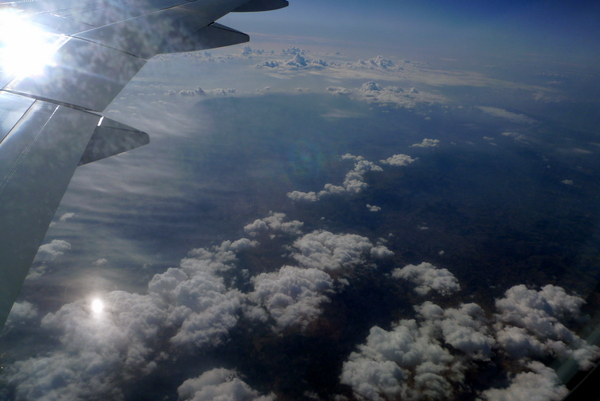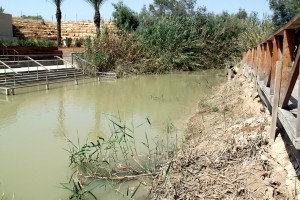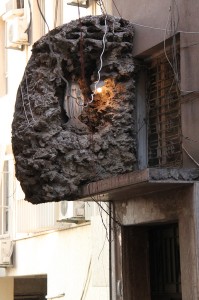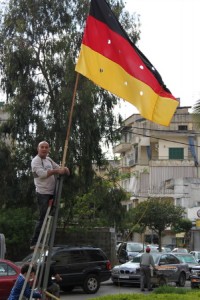That’s it. The decision is made. In just over a month we’ll be leaving Lebanon on a one-way ticket. The flights are booked. It seems incredibly sudden and yet we’ve been debating this decision for a year now. The fact that it took us so long to come to a conclusion is some indication of how hard a decision it was.
I would have loved to bring up my kids in a country where melons and green almonds are sold off the back of pick-up trucks, where old men sit on the pavement playing backgammon for hours, where you can tell the season by the stalls outside the grocer’s.
I would have loved for them to learn a language I can’t teach them, a language I can attest is difficult to learn late in life, and particularly hard to learn outside the country.
18 months ago we were still thinking of finding a family home out of town, choosing schools, settling for the long-term. We bought a new car, one which could take the battering of the potholes and poor drainage that had us swishing through water a foot deep on the so-called autostrade.
Back then, I remember reading about a westerner living in Lebanon who chose to stay throughout the July 2006 onslaught. Her loyalty was touching. And a lot of what she said made sense to me. Lebanon has come through a lot worse after all, and signs of trouble are permanent fixtures. Conflict is the small talk of Lebanon like the weather is the small talk of the Brits. Living here you realise that gunfights in the street here or there rarely impact your life. And above all, you invest in Lebanon. Easy to do, in such a warm, spontaneous country. Emotionally, your life is here and you belong here more than anywhere else. If July 2006 had happened in 2010, perhaps we would have stayed.
Post-motherhood, that has all changed. Not so much because of the pressure that has been building outside Lebanon’s borders for two years and is now seeping through. But because of a wriggly little being that has a personality and determination all of her own, and is soon to find her dominion of all things knee-high challenged by a sibling.
Back in September, I did a piece for BBC Radio 4 on how to know when it was time to go. We’ve now reached that time.
With small children, you cannot live as permanent tourists. You can’t be ready to up and leave at a moment’s notice. Because we would, leave that is.
Of course lots of people lived through the war with their kids, some by choice, many by necessity. But the difference is they have family here. The people they are closest to will be here for them throughout and to leave Lebanon would be to abandon them.
Not so in our case. If we stay in Lebanon through thick and thin, we won’t be there for our family when they need us and they won’t be there for us. I want my kids to learn three languages and live multicultural lives; to gorge themselves on swollen kaki and bleeding cherries; to have summers so long they welcome the downpour that soaks to the skin in seconds. But more than that I want them to grow up knowing their cousins, to spend time with their grandparents, to build a life and not have it stolen by some cause that could have been foreseen.
Lebanon is still more home than anywhere else right now. But we belong elsewhere, somewhere nearer family. I’m just not sure where.




